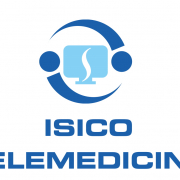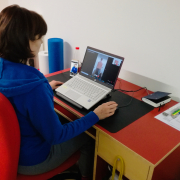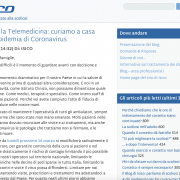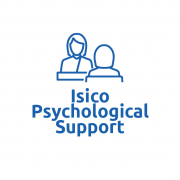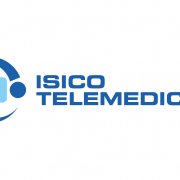ISICO Telemedicine described in a recently published article
ISICO’s use of the telemedicine approach during the COVID-19 emergency and the data collected in relation to that experience are the focus of a new article by our team, Feasibility and acceptability of telemedicine to substitute outpatient rehabilitation services in the COVID-19 emergency in Italy: an observational everyday clinical-life study, which has just been published in Archives of Physical Medicine and Rehabilitation.
“This is a hugely important publication,” remarks Prof. Stefano Negrini, scientific director of ISICO, “as it testifies to the work done by ISICO right at the beginning of the COVID-19 crisis when, in our daily clinical work, we switched to the telemedicine modality in order to avoid having to interrupt the care and treatment of many of our patients”.
Here are a few figures: the article examines data collected over a 15-day telemedicine period, during which 325 teleconsulations and 882 telephysiotherapy sessions were provided. Instead, over the entire lockdown period, the remote sessions numbered 3,231 in total, i.e. 2317 telephysiotherapy sessions and 914 teleconsulations. These are impressive numbers, especially if we consider the high level of patient satisfaction recorded (2.8/3).
ISICO has longstanding experience in caring for and monitoring young scoliosis patients (children and adolescents) living all over Italy and also abroad. Precisely for this reason, i.e. in order to find a way of allowing farther-flung patients to travel to the centre less often, it has already experimented with various telemedicine tools.
In fact, over the years, ISICO patients, some even living in other continents (such as Australia and the USA), have been able to follow long-term treatment programmes, thanks to the availability of online consultations.
Therefore, our temporary recourse to online consultations and treatments following the COVID outbreak and during the subsequent lockdown did not constitute a completely new experience, but rather a speeding up of a process that was already under way.
“This strategy aims to decrease the heavy impact on the health systems and allow hospitalisation and intensive care of the huge number of patients in need, thereby reducing the overall mortality” explains Prof. Negrini. But “the COVID-19 emergency is hitting hard not only infected patients, but also all the others. In many countries, outpatient services have been fully closed due to the need for physicians to treat COVID-19 patients, and also to reduce the risk of infection linked to travelling. This has left outpatients are on their own and mostly self-managing. This is not acceptable for diseases that can still show sudden, important progressions, even in the space of a few months, and it is even less acceptable in children.”
How did telemedicine at ISICO work? The telemedicine services consisted of teleconsultations and telephysiotherapy sessions, which lasted as long as usual interventions. They were delivered using free teleconference apps, caregivers were actively involved, and interviews and counseling were performed as usual.
Teleconsultations included standard, but adapted, measurements and evaluations by video and using photographs and videos prepared according to specific tutorials and sent in beforehand. During telephysiotherapy sessions, new sets of exercises were defined and recorded as usual.
In the article, we considered 3 phases: the first covers the usual services delivered, over a period of 30 working days (January 7th to February 23rd), prior to the discovery of the spread of COVID-19 the second phase (February 24th to March 14th) was the one in which COVID-19 began to impact on our usual services, but before we started using the telemedicine approach; finally the last data analysed refer to the 15 working days from our introduction of exclusively Telemedicine consultations (starting from March 16th)
What came out of the study?
That “Telemedicine is feasible and allows us to keep on providing outpatient services that meet with patients’ satisfaction. In the current pandemic,” Prof. Negrini concludes, “telemedicine has been shown to be effective in specific areas of care, particularly where technology is involved. To our knowledge there are no published results about the application of telemedicine to patients with spinal deformities,” and the publication of this article shows that “this strategy can provide a viable alternative to closure of many outpatient services”.

